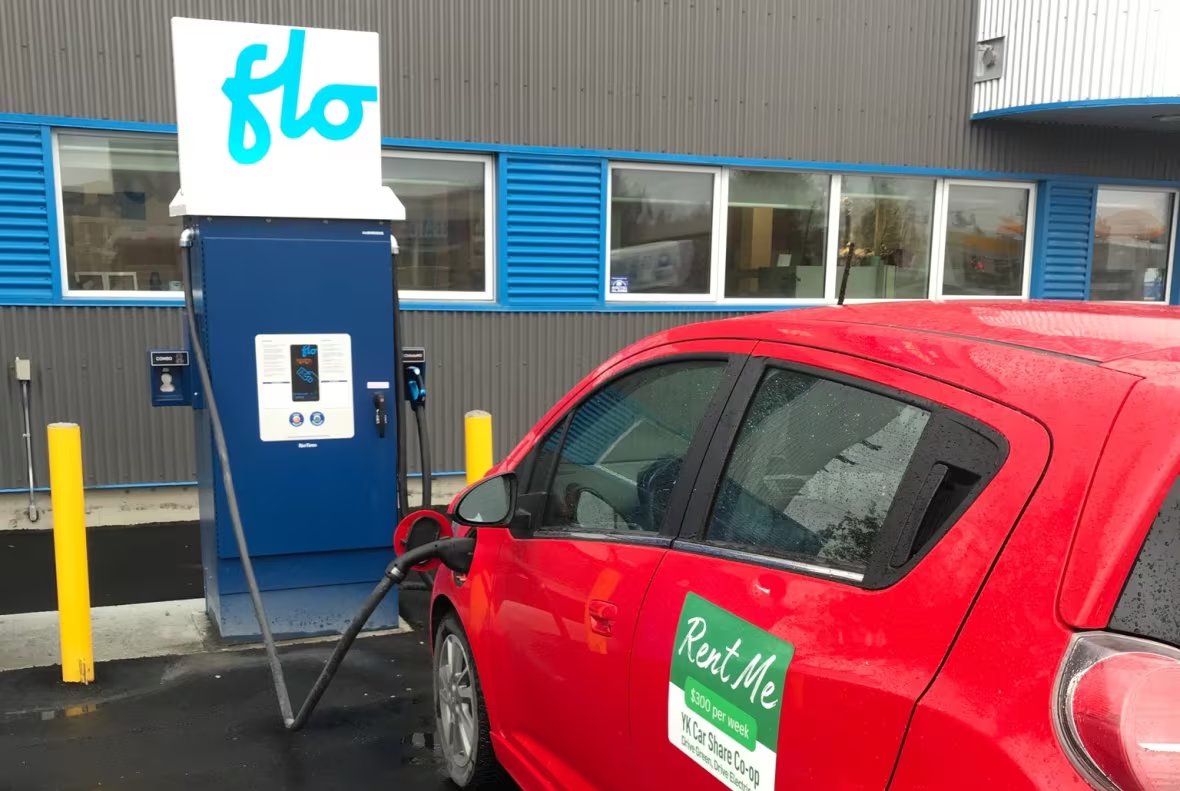Study forecasts challenges of electric vehicle chargers on northern power grids

A study is revealing some of the challenges that electric vehicles will pose to northern power grids — and it’ll likely be revised now that Canada has a plan for phasing out the sale of gas-powered cars and trucks.
“At no point in our studies did we consider 100 per cent electric vehicle adoption,” said Michael Ross, a researcher at Yukon University who is leading the study.
Ross, an industrial chair in northern energy innovation, said his research is looking at slow to high adoption rates of electric vehicles in Dawson City and parts of Whitehorse and Yellowknife. So far, it’s showing some of the ways residential power grids will be strained if people in those neighbourhoods add Level 2 electric vehicle charging stations to their homes, he said.
But on the heels of Canada’s announcement, he’ll likely add case studies for very high adoption now. There’s still time. Ross doesn’t expect the study’s findings to be published until November 2024.
Regulations announced by the federal government earlier this month give automakers the next 12 years to phase out the manufacturing of combustion engine cars, trucks and SUVs. There’s also a requirement to gradually increase the proportion of electric models they offer for sale each year.
Ross said the study, funded by power utilities in all three territories, won’t just outline all the challenges that may arise as interest in electric vehicles — and the means to charge them — grows. It’ll also contain solutions or ways to mitigate those issues.
Faster charging needs more power
Jay Massie, the vice president of northern development and Indigenous relations for ATCO Electric, said ATCO already has a “good understanding” of what electrification will do to northern power grids.
“The fast chargers … are significant electrical loads on the grid, so it’s just an increased demand and strain,” he explained. “The faster they charge, the more electricity they need.”
A common electrical outlet in a home supplies about 120 volts of electricity. It’s compatible with a Level 1 charger, which can take up to 50 hours to fully charge an electric vehicle, and which may be suitable for the smaller batteries of plug-in hybrid vehicles.

The study is looking at Level 2 chargers, which require a 208-volt or 240-volt wall outlet — the same as dryers, ovens and air conditioners. A Level 3, the fastest type of charger available, needs a 480-volt outlet. They’re typically found in public places and businesses.
The challenge with electrification will be balancing the demand for power while keeping the supply on the rest of the system stable and reliable.
Transformers, the big green boxes you see in a neighbourhood, increase or decrease the voltage of electricity flowing through an energy grid. Ross said some transformers are “underrated,” meaning they weren’t designed to have a lot of electric vehicles integrated into them.
Chargers can also be a “very big power draw,” he said, and some homes may experience an undervoltage while their vehicle is charging. That means the power on the system drops below the “acceptable voltage,” which could damage equipment.
“We want to say with a certain rate of adoption, we anticipate this particular transformer to have capacity issues and here are some specific ways that could be addressed,” Ross explained. “We want to be very specific and deliberate, but not prescriptive, on what needs to be done.”
‘There’s going to be cost’
In order to keep up with whatever demand there may be in the future, Massie said utility companies will be looking at upgrading or building new infrastructure.
“There’s going to be cost to the system,” he said. Understanding what those costs will be, he said, will help utilities and governments figure out a way forward.
“For utilities, the only spot for us to recoup costs is from ratepayers,” he said. He said utilities, like ATCO, will need to work with government to make sure that costs of upgrading the system and meeting peoples’ power needs are not “unreasonably borne” on people who aren’t buying electric vehicles.
Canada’s plan to phase out the manufacturing of gas-powered vehicles, Massie said, came as a bit of surprise.
“We understand the need for electrification and for reducing greenhouse gas emissions for sure. We just want to ensure it’s done in a measured and coordinated manner and I think this study is a really good step in that direction.”
Related stories from around the North:
Canada: Canada’s Northwest Territories investigating network of electric vehicle charging stations, CBC News
Finland: Cold weather perfect to pioneer electric aviation says Finnair, The Independent Barents Observer
Norway: Arctic Norwegian city gets world’s northernmost electric post truck, The Independent Barents Observer
Russia: Mining boost in Russian central Arctic to feed electric vehicle market, The Independent Barents Observer
Sweden: Giant battery factory bringing economic boom to Northern Swedish city, Radio Sweden
United States: Alaska’s first, electric public transit bus ready to hit Anchorage streets, Alaska Public Media



